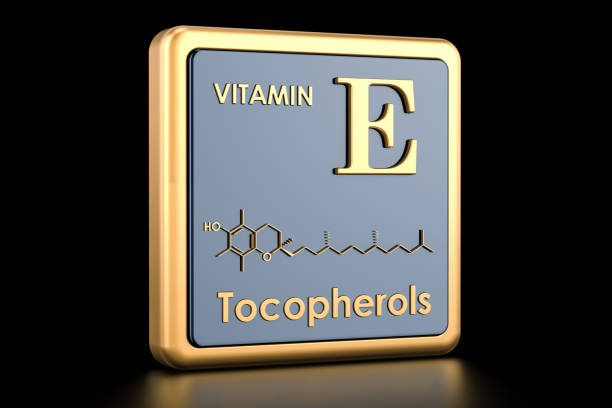In recent years, tocotrienols have garnered increasing attention in the health and wellness community. These compounds, closely related to tocopherols (commonly known as Vitamin E), are emerging as powerful antioxidants with a range of potential health benefits. Although tocotrienols are part of the Vitamin E family, they possess unique properties that set them apart from their more widely known counterparts. This article delves into the science behind tocotrienols, their health benefits, sources, and potential applications.
What Are Tocotrienols?
Tocotrienols are a group of compounds that are part of the Vitamin E family, along with tocopherols. While tocopherols are the most common form of Vitamin E found in dietary supplements, tocotrienols are less prevalent but offer distinctive benefits. Tocotrienols come in four different forms: alpha, beta, gamma, and delta, each with unique biological activities.
The primary difference between tocotrienols and tocopherols lies in their chemical structure. Tocotrienols have an unsaturated side chain, which makes them more flexible and effective in penetrating cell membranes. This structural variation enables tocotrienols to interact with cellular components more effectively than tocopherols.
Health Benefits of Tocotrienols
- Antioxidant Power: Tocotrienols are potent antioxidants, which means they can neutralize free radicals—unstable molecules that can cause oxidative damage to cells. This antioxidant activity helps protect against various diseases and supports overall cellular health. Research indicates that tocotrienols may be more effective than tocopherols in scavenging free radicals due to their unique structure.
- Cardiovascular Health: One of the most promising areas of research on tocotrienols is their impact on cardiovascular health. Studies suggest that tocotrienols can help lower cholesterol levels by reducing the synthesis of cholesterol in the liver and increasing its excretion. They also have anti-inflammatory properties that may help prevent the buildup of plaque in the arteries, thus reducing the risk of heart disease.
- Cancer Prevention: Tocotrienols have shown potential in cancer prevention studies. Their ability to inhibit cancer cell proliferation and induce apoptosis (programmed cell death) in malignant cells has been observed in various preclinical studies. Tocotrienols may also enhance the effectiveness of conventional cancer treatments and reduce side effects.
- Neuroprotective Effects: The neuroprotective properties of tocotrienols are another area of interest. They have been shown to protect brain cells from oxidative stress and inflammation, which are linked to neurodegenerative diseases like Alzheimer’s and Parkinson’s. Tocotrienols may also support cognitive function and slow down the progression of neurodegenerative conditions.
- Skin Health: Tocotrienols can benefit skin health by promoting skin repair and reducing the appearance of aging. Their antioxidant properties help protect the skin from damage caused by ultraviolet (UV) radiation and environmental pollutants. Tocotrienols can also improve skin elasticity and hydration.
- Metabolic Health: Emerging research suggests that tocotrienols may play a role in managing metabolic conditions such as diabetes. They have been found to improve insulin sensitivity and reduce blood sugar levels in some studies. Additionally, tocotrienols may help manage complications associated with diabetes, such as oxidative stress and inflammation.
Sources of Tocotrienols
Tocotrienols are found in various foods, particularly in certain plant-based oils and grains. Some of the best sources include:
– Palm Oil: Red palm oil is one of the richest sources of tocotrienols, especially gamma and alpha-tocotrienols. It is commonly used in cooking and as a food ingredient in many regions.
– Rice Bran Oil: This oil is another excellent source of tocotrienols, particularly gamma-tocotrienol. It is often used in Asian cuisines and as a cooking oil.
– Barley: Barley contains tocotrienols, and incorporating it into the diet can contribute to overall tocotrienol intake.
– Oats: Oats are a good source of tocotrienols and can be included in a variety of meals.
– Nuts and Seeds: Some nuts and seeds contain tocotrienols, although in smaller amounts compared to oils and grains.
– Supplements: Tocotrienol supplements are available for those who may not get enough from dietary sources. These supplements can provide a concentrated dose of tocotrienols, but it is essential to choose high-quality products and consult with a healthcare provider before starting any new supplement regimen.
Safety and Considerations
Tocotrienols are generally considered safe when consumed in moderate amounts through food or supplements. However, high doses of tocotrienol supplements may interact with certain medications, such as anticoagulants, and could potentially affect blood clotting. It is crucial to consult with a healthcare provider, especially if you have underlying health conditions or are taking other medications.
Conclusion
Tocotrienols are a fascinating and promising component of the Vitamin E family with a wide range of potential health benefits. Their unique antioxidant properties, coupled with their roles in cardiovascular health, cancer prevention, neuroprotection, skin health, and metabolic support, make them an important area of research and potential therapeutic use. While more clinical studies are needed to fully understand their benefits and optimal usage, incorporating tocotrienol-rich foods into a balanced diet and considering supplements under medical guidance may contribute to overall health and well-being.
As our understanding of tocotrienols continues to evolve, they may become a more prominent part of nutritional strategies aimed at promoting health and preventing disease. For now, focusing on a varied diet rich in natural sources of tocotrienols can be a beneficial step toward harnessing their potential benefits.

